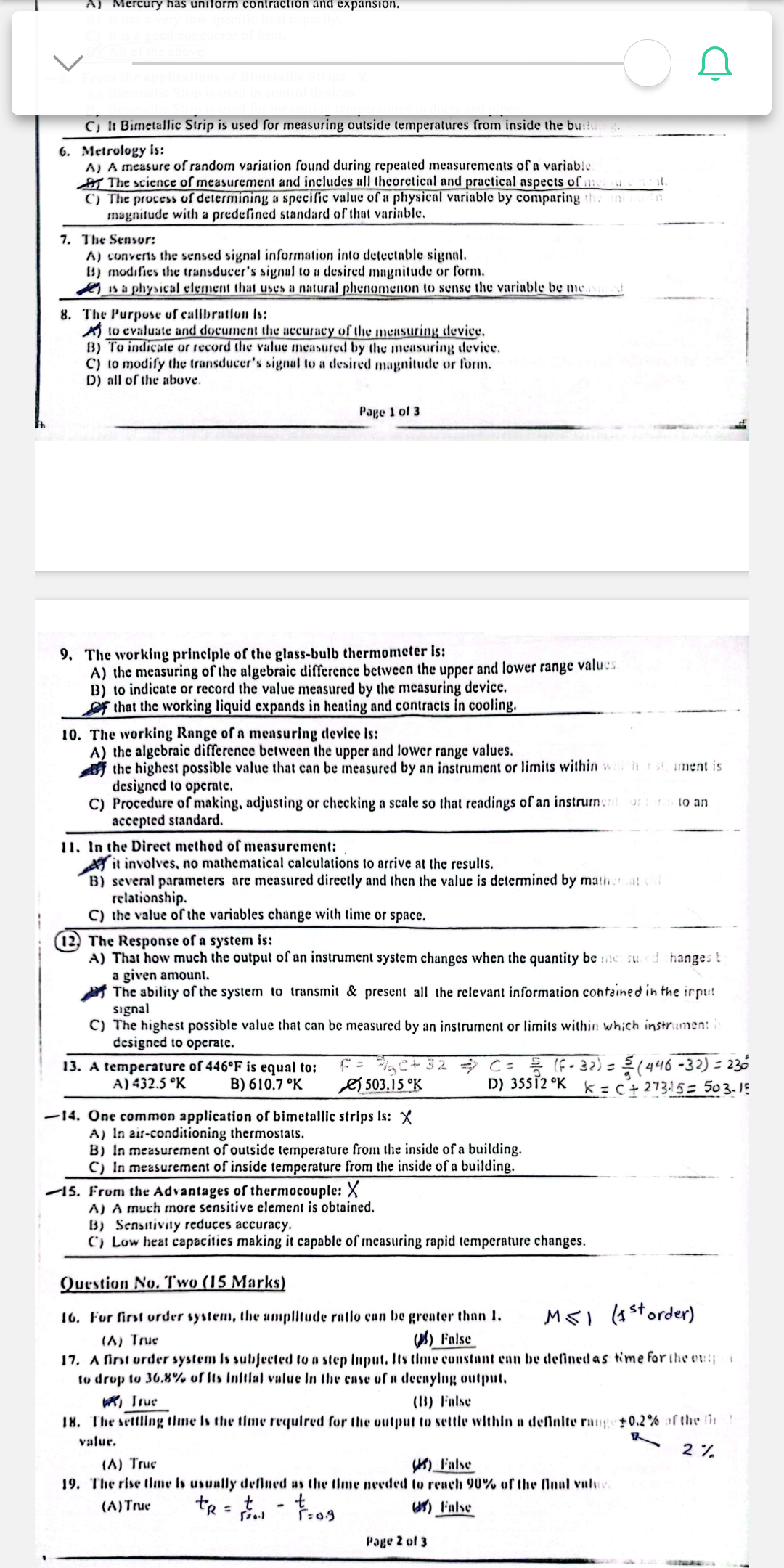1. The working principle of the glass-bulb thermometer is: A) the measuring of the algebraic difference between the upper and lower range values. B) to indicate or record the value... 1. The working principle of the glass-bulb thermometer is: A) the measuring of the algebraic difference between the upper and lower range values. B) to indicate or record the value measured by the measuring device. C) that the working liquid expands in heating and contracts in cooling.

Understand the Problem
The question appears to be a mixture of multiple-choice questions related to metrology, thermodynamics, and practical applications of measuring devices. It is likely aimed at testing knowledge in these areas.
Answer
The working liquid expands in heating and contracts in cooling.
The working principle of the glass-bulb thermometer is that the working liquid expands in heating and contracts in cooling.
Answer for screen readers
The working principle of the glass-bulb thermometer is that the working liquid expands in heating and contracts in cooling.
More Information
Glass-bulb thermometers use a liquid, often mercury or alcohol, that expands and contracts with temperature changes, allowing for temperature measurement.
Tips
Ensure to recognize that glass-bulb thermometers rely on the thermal expansion of liquids, a fundamental principle of thermodynamics.
Sources
AI-generated content may contain errors. Please verify critical information